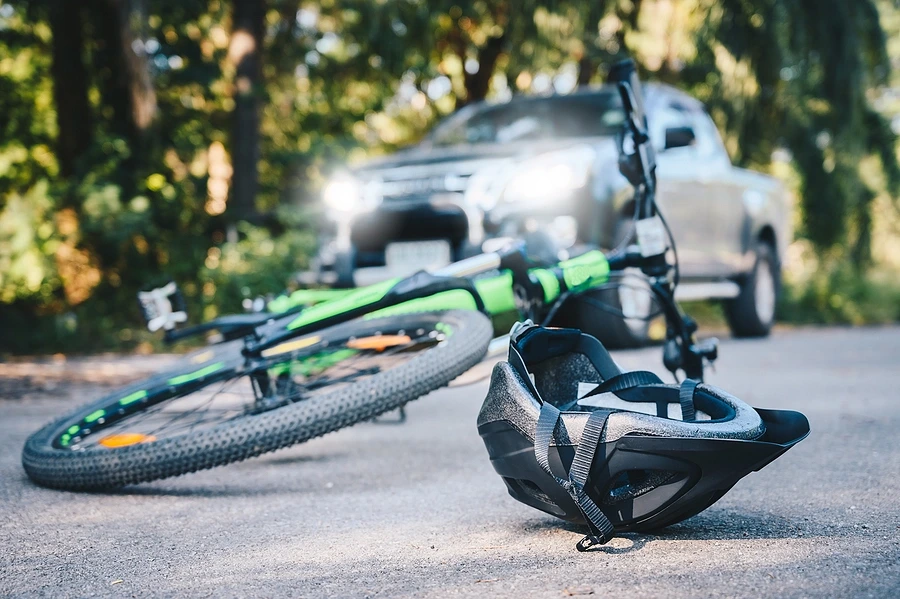What You Should Know and Do After a Bicycle Accident in South Carolina

Bicycle accidents can happen unexpectedly and often leave riders confused about what steps to take afterward. Whether the accident involves a car, a pedestrian, or just a fall caused by road conditions, knowing what to do next is essential. Acting quickly and carefully can protect your health and legal rights, especially if you need to file a personal injury claim. This guide breaks down the key actions you should take after a bicycle accident in South Carolina.
Check Yourself and Others for Injuries
The first priority is safety. If you can, move out of traffic to a safe location. Assess yourself for injuries, even if you feel okay. Some injuries, like concussions or internal bleeding, might not show symptoms immediately. If you are seriously hurt or unsure about your condition, call 911 or ask someone nearby to do so. Emergency responders can provide immediate medical care and transport you to a hospital if necessary.
If others are involved in the accident, check on them as well. If anyone is injured, encourage them to seek medical help. Providing aid when possible shows good faith and can be important if the accident leads to legal proceedings.
Call the Police and Report the Accident
In South Carolina, it’s important to report bicycle accidents involving injury, death, or significant property damage. Calling the police ensures there is an official record of the incident. Officers will document the scene, take statements from all parties, and file a report. This report can be crucial when dealing with insurance companies or if you pursue a personal injury lawsuit.
When the police arrive, be honest and factual in your description. Avoid admitting fault or making statements that could be misinterpreted. Simply provide your version of what happened and let the officers do their job.
Collect Evidence at the Scene
Gathering evidence immediately after the accident strengthens your case. Use your phone or camera to take clear photos of the accident scene, your injuries, the bicycle, and any vehicles involved. Capture different angles, including skid marks, road conditions, traffic signals, and any obstacles that may have contributed to the crash.
If there are witnesses, ask for their contact information and whether they would be willing to provide a statement. Witness accounts can offer unbiased perspectives that support your claim.
Exchange Information with Other Parties
Make sure to exchange names, addresses, phone numbers, and insurance details with any other people involved in the accident. This information is necessary for insurance claims and potential legal action. Do not discuss fault or make promises at the scene. Keep the conversation focused on sharing contact information and staying cooperative.
Seek Medical Attention Even If You Feel Fine
Some injuries from bicycle accidents can develop over time. Conditions like whiplash, bruises, or concussions might not be immediately obvious. Getting a medical evaluation soon after the accident is important. A doctor can diagnose hidden injuries and provide documentation to support your case if you need compensation.
Keep copies of all medical records, bills, and prescriptions. These documents prove the extent of your injuries and the costs associated with treatment.
Notify Your Insurance Company
If you have health or auto insurance that covers accidents, notify your provider as soon as possible. Be truthful but brief when describing what happened. Avoid giving detailed statements or signing anything without legal advice. Insurance companies often try to limit payouts, so it’s best to consult with an attorney before agreeing to any settlement offers.
Contact a Personal Injury Lawyer Familiar with Bicycle Accidents
Bicycle accidents can involve complex liability issues. Whether the other party was negligent, the road was poorly maintained, or safety laws were ignored, an experienced personal injury lawyer in South Carolina can help you navigate these challenges.
A lawyer will investigate the accident, gather evidence, communicate with insurance companies, and fight for the compensation you deserve. This compensation may include medical expenses, lost wages, pain and suffering, and property damage.
Keep Track of All Accident-Related Expenses and Communication
Maintaining a detailed record of all costs related to the accident is crucial. This includes medical bills, bike repairs, transportation, and any income lost due to injury. Also, keep notes of all communications with insurance adjusters, doctors, and lawyers. Organized records will make it easier to build a strong case.
Avoid Common Mistakes After a Bicycle Accident
Many accident victims unintentionally harm their claims by making simple mistakes. Avoid admitting fault at the scene or on social media. Don’t delay medical treatment, and never accept an initial settlement without understanding your full damages. Stay off social media or keep your posts private to prevent opponents from using your words against you.
Understanding South Carolina’s Bicycle Laws
South Carolina has specific laws regarding bicycle safety and liability. For example, cyclists must obey traffic signals and use lights or reflectors at night. Knowing these rules helps determine fault and responsibility. A local attorney can explain how these laws apply to your case.
Conclusion
A bicycle accident is a stressful event, but knowing what steps to take afterward can protect your health and legal rights. Prioritize safety and medical care, document the scene thoroughly, and get professional legal advice if needed. Acting promptly and responsibly increases your chances of a favorable outcome. If you have questions about a bicycle accident in South Carolina, reach out to a qualified personal injury lawyer who understands the local laws and can guide you through the process.
